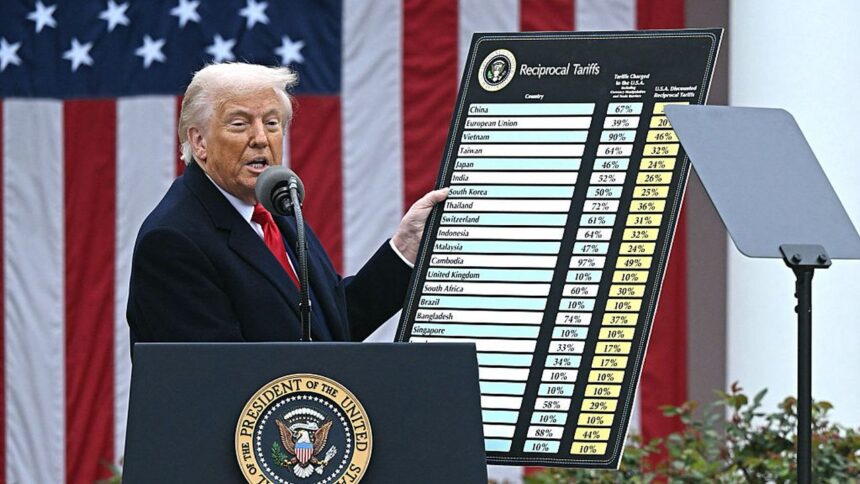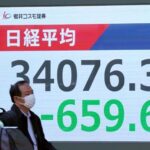President Donald Trump has imposed a sweeping 10% tariff on all imports into the United States, with even higher rates for nations he labels as the “worst offenders.”
The move marks a dramatic escalation in his economic strategy, aiming to bolster the U.S. economy but sparking outrage and concern among global leaders.
The European Union condemned the tariffs as a major blow to the world economy, while China vowed to retaliate with countermeasures. Australia, one of America’s closest allies, described the decision as “not the act of a friend,” signaling rising diplomatic tensions.
In the UK, Labour leader Keir Starmer warned that the tariffs would clearly hit the British economy. However, he urged a measured response, promising to tackle the challenge with cool and calm heads.The British government is yet to announce any formal counteraction.
The controversial move comes as Trump stakes his political legacy on using tariffs to boost domestic manufacturing and reduce the trade deficit. For decades, he has advocated for protectionist policies, arguing that higher import costs will encourage American production.
Financial markets around the world reacted sharply to the announcement. Major European indices in London, Paris, and Berlin dropped significantly at the opening bell, reflecting investor anxiety over potential trade disruptions. Asian markets initially fell but showed some signs of recovery later in the day.
Economists and trade experts warn that the global economy could face significant fallout, with supply chains strained and costs rising for businesses dependent on imported goods. The ripple effects could further inflate prices, hitting consumers hard.
White House insiders indicate that Trump is prepared to double down on his tariff policy, dismissing criticism as political posturing by foreign governments. Aides say he believes that any short-term economic pain will be outweighed by long-term gains for American industry.
Meanwhile, the Biden administration has distanced itself from Trump’s latest move, emphasizing the importance of multilateral trade agreements and warning that aggressive tariffs could backfire. Former President Biden, speaking at a conference in New York, criticized the decision as “reckless and damaging to our international relationships.”
Across the Atlantic, EU officials are meeting to discuss possible countermeasures, including reciprocal tariffs on American goods. China’s Ministry of Commerce has already announced plans for targeted sanctions, though specifics remain under discussion.
As the fallout continues, political analysts predict that the tariffs could become a key issue in the upcoming U.S. elections. Trump’s supporters hail the move as a bold stand against unfair trade practices, while critics argue it risks plunging the global economy into recession.
The coming days are likely to see intensified diplomatic maneuvering as nations calculate how to respond to Trump’s economic gambit. For now, global markets remain on edge, bracing for the impact of this unprecedented trade policy shift.







